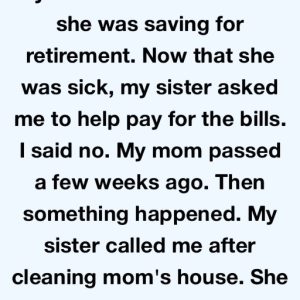**Stomach Cancer Develops Silently: These Are the First Signs You Should Never Ignore**
Stomach cancer (gastric cancer) is known as one of the “silent” cancers because early symptoms are often mild, vague, or easy to confuse with everyday digestive problems. By the time many people seek medical help, the disease has already progressed—making early awareness absolutely essential.
While these symptoms **do not automatically mean cancer**, recognizing them early can make a life-saving difference.
—
## **1. Persistent Indigestion or Heartburn**
Occasional indigestion is normal—but **long-lasting, unexplained burning or discomfort** in the upper abdomen can be an early warning sign.
* Antacids may temporarily help, but the discomfort keeps returning.
* A feeling of pressure or fullness after eating small amounts may appear.
—
## **2. Loss of Appetite or Feeling Full Too Quickly**
If you suddenly lose interest in food—or feel unusually full after just a few bites—it may indicate that the stomach isn’t emptying properly. This early satiety is one of the most overlooked symptoms.
—
## **3. Unexplained Weight Loss**
Weight loss that happens without dieting, increased activity, or other lifestyle changes should always be checked.
* This occurs because the body struggles to process food and energy normally.
—
## **4. Nausea and Vomiting**
Occasional nausea is common, but **chronic nausea**, especially after meals, is not.
Red flags include:
* vomiting undigested food
* persistent queasiness
* vomiting that becomes more frequent over time
—
## **5. Abdominal Pain or Discomfort**
Pain is often mild in the beginning and may feel like:
* dull aching in the upper stomach
* pressure or discomfort
* intermittent cramps
If the pain does not improve or becomes more frequent, it’s time to see a doctor.
—
## **6. Fatigue and Weakness**
When stomach cancer causes slow internal bleeding, it leads to anemia (low red blood cells), which results in:
* chronic tiredness
* pale skin
* shortness of breath
* dizziness
Many people dismiss this as “stress” or “low energy,” but it can be a crucial early clue.
—
## **7. Blood in Vomit or Stool**
This is a more advanced warning sign, but sometimes it appears early.
Watch for:
* black, tar-like stools
* vomiting that resembles coffee grounds (old blood)
* bright red blood (less common)
Even if it only happens once, immediate medical evaluation is necessary.
—
## **8. Difficulty Swallowing (Dysphagia)**
As the cancer grows, it may narrow the passage between the esophagus and stomach.
You may experience:
* pain while swallowing
* food getting “stuck”
* frequent choking or coughing while eating
—
## **9. Bloating After Eating**
Persistent bloating—especially after small meals—may indicate inflammation or a blockage inside the stomach.
It often comes with burping, discomfort, or pressure.
—
## **10. Changes in Bowel Habits**
Chronic constipation or diarrhea, especially when accompanied by other symptoms, could suggest digestive disruption linked to early stomach cancer.
—
# **Who Is More at Risk?**
Certain factors increase the likelihood of stomach cancer:
* Helicobacter pylori (H. pylori) infection
* Smoking
* Heavy alcohol consumption
* Diets high in smoked, processed, or salty foods
* Family history of gastric cancer
* Gastritis or stomach ulcers
* Obesity
Being aware of risk factors helps you make informed lifestyle and screening choices.
—
# **When to See a Doctor**
You should consult a healthcare professional if you experience:
* persistent digestive symptoms lasting more than 2–3 weeks
* unexplained weight loss
* changes in appetite
* blood in stool or vomit
* chronic fatigue with no clear cause
Early detection dramatically improves treatment outcomes.
—
# **Final Thoughts**
Stomach cancer often grows quietly—but your body gives subtle signals long before the disease becomes advanced. Paying attention to early symptoms can save your life.
If you or someone you love experiences several of these signs, don’t panic—but do schedule a medical evaluation. Awareness is one of the strongest tools we have against silent diseases.





